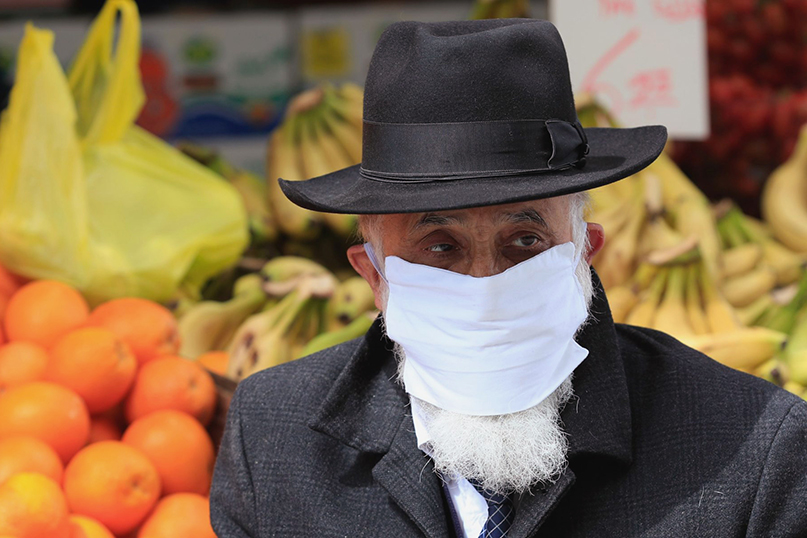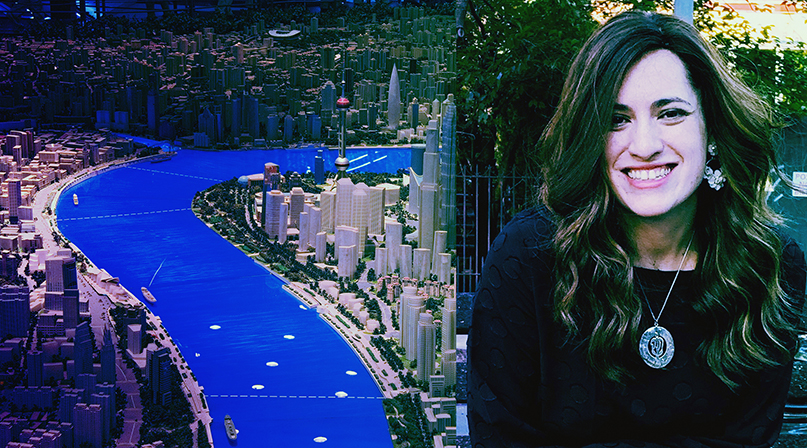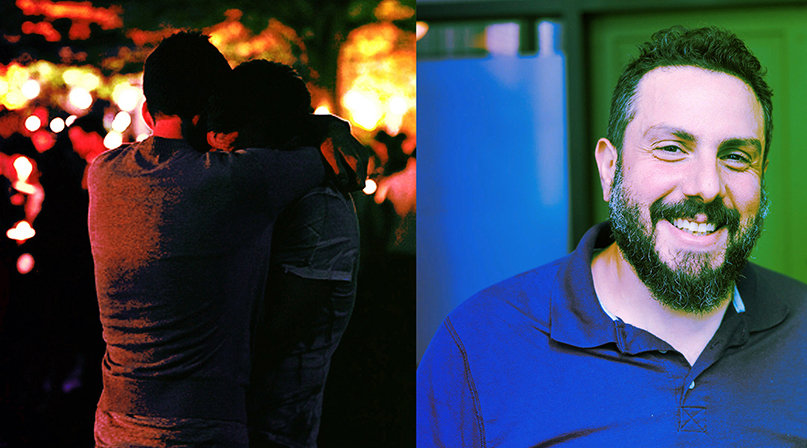
By Laura E. Adkins
(JTA) – After months of social distancing, we find ourselves longing for things to return to normal – and recognizing that it might be a long while before that happens.
But is a return to business as usual really what we should aim for? The extended disruption gives us a chance to take stock of how we’ve operated up to now, consider alternatives and even build a better vision for the future.
We’re already seeing that happen across the Jewish world. Jews of all denominations have tapped digital tools to deliver the Torah and connection that had been largely analog. The heartbeats of Jewish life – weddings, funerals, bar and bat mitzvahs, studying Torah, cooking together, telling jokes and daily minyanim – have been reimagined to match the circumstances. And communities are stepping up to support their neediest members in new ways.
But those have mostly been quick fixes, responsive and scattershot rather than carefully considered and coordinated. What if we had a shared vision for the Jewish future, so we could do more than just fumble our way there?
The Jewish Telegraphic Agency (JTA) asked some of the most thoughtful and knowledgeable Jews to share their best ideas for the post-pandemic Jewish future. Here are their thoughts.
We hope the ideas expressed in these pages will start conversations and inspire new visions that can help the Jewish people weather this crisis and emerge even stronger. If you have an idea for the post-pandemic Jewish future that you’d like to share, please email an essay for consideration to Judie Jacobson at judiej@jewishledger.com.
Today, we’re mourning the loss of our social spaces. Tomorrow, let’s redesign them.
By Hannah Lebovits
(JTA) – “Remember when we used to go to shul, Mommy?”
It’s Shabbat morning and my children are repeating the same weekly ritual which now seems to have replaced the practice of actually attending synagogue. While my husband and I pray, they pepper us with questions, comments and reminders about the world that once was. They wax poetic about the hot potato kugel at the weekly kiddush.
Prayers are great anywhere, I tell them. And though it doesn’t come out of the kitchen in a two-foot long pan, I remind them that my kugel isn’t half bad.
But what my children miss is not just the Shabbat services and observances – they are also missing the synagogue itself.
I study urban planning, so I have a framework for understanding what my children are yearning for. I know that social interactions are deeply shaped by physical environments. The design of a city – the built and natural infrastructure, the designated uses of specific spaces – affects the ways that people experience one another and themselves. And what does and does not get built, the amount of space that is dedicated to specific functions and the general flow of the city are fundamentally shaped by what the people within the city believe to be important.
The earliest cities were intended to serve as centers of worship and religious practice. Ziggurats, pyramids, temples, churches, mosques and other religious buildings not only served as a statement to the importance of the religion – they were also formally and informally used as mechanisms to maintain religious observance and social cohesion. Either directly, through sermons or practices, or indirectly, through communal gatherings and peer pressure, physical infrastructure plays a significant role in the enduring practice of religion.
So, it’s clear to me that months of isolation from synagogues, schools, religious non-profits and other internal social spaces will affect the Jewish community for longer than the virus requires.
With such an abrupt and extended interruption in practice and the decentralization of observance, can we expect that people will simply snap back when buildings reopen? Or will people find it difficult to readjust to the expectations of institutional Judaism having been without its communal aspect for so long? What we know about public space suggests that the latter case is more likely. After months of distance prayer and individualized religious practice, we will grow distant from the social processes that our physical institutions enabled us to maintain.

By nature, individual household standards often differ from those that are enforced through institutions and communal systems. Even for those who can and do utilize technology to engage in prayers, learning and communal events, the experience just isn’t the same.
Changes to our Jewish space – now overwhelmingly personal and individualized – will likely mean changes in the ways we are Jews together. This new state of Jewish life presents opportunities: When we return to them, we can use our physical institutions to strengthen individual growth, giving people the tools to thoughtfully engage with ritual, practice and belief.
Rather than disregard the value of individualized and personal spaces, we can think more creatively about how to create communal spaces that are as flexible, under-standing and thoughtful as our personal living rooms. Spaces that encourage us to expand our mindfulness of the needs of others, that thrive on transparency and openness – spaces that enable us to avoid the perpetuation of hidden crises, financial debt and under-addressed mental health concerns.
We can redesign the physical layouts of synagogues to maximize the inclusion of people with disabilities, women, and children. We can set up prayer and communal spaces to allow people to interact with one another and encourage more thoughtfulness. We can use communal event landscapes – such as a kiddush – to engage in thoughtful conversations about food and housing insecurity.
These efforts will require leaders to adapt and bring new voices to the table. And we might be surprised to see that thoughtful design choices can actually enable, rather than hinder, inclusion, personalization and religious adherence.
We cannot pursue or achieve these goals if we maintain a desire and expectation to return to business as usual once the immediate health crisis has ended. Just as COVID-19 has forced us to rethink the ways we live our secular lives, revitalizing our community after this crisis will require our leaders to reconsider their own deeply held views on religious life.
I don’t want my children to spend every Shabbat remembering what once was. With a bit of thoughtful work, they will gain tremendously from the Jewish spaces that can be.
Hannah Lebovits is a PhD candidate in Urban Studies and Public Affairs at Cleve-land State University. She writes about metropolitan and urban governance at Cleveland Scene.
Hillel is usually a happy, vibrant space. Now we need to help students process their grief.
Rabbi Jonah Geffen
(JTA) – Never in a million years did I ever consider that my work would look like it does today.
When the COVID-19 pandemic hit, our vibrant Jewish community on campus transitioned to a virtual Hillel. We moved our cohort-based learning programs online and increased our presence on Instagram. We added virtual yoga, pre-Pesach cleaning, virtual programs for Yom Hashoah and Yom Ha’atzmaut.
Hunter Hillel staff, where I serve as senior Jewish educator and campus rabbi, reached out to dozens of students each day. What we quickly realized was that the most engaging programming in the world wouldn’t match up to the grief that students were feeling.
Death has become a routine part of Hillel students’ young lives. On campus, we would see them, talk to them and know what they were experiencing day to day. Now, in order to be sure we are there for our students, we text, email and call them daily. Too often they share that they’ve lost a loved one to coronavirus – but that us reaching out to them means so much.
To date, New York City has had over 162,000 confirmed cases of COVID-19. Over 12,000 have died. This is the new reality of New York City. We are the part of the Unit-ed States hardest hit by the virus, and for Hunter Hillel students, the implications of COVID-19 are heartbreakingly personal.
We heard this week from a dedicated and brilliant former student. She was Hunter Hillel president and she crushed it. She graduated last May and moved on with her adult life.
She checked in not to let us know about a new job or acceptance to medical school; not to tell us she was getting married. No, she wrote because all four of her grandparents have been sick with COVID-19, and one just died.
The family has no idea how they are going to be able to pay for the funeral, and asked if we could help them defray the costs. We directed her to the Hebrew Free Burial Association.

For all of us, “alone” has new meaning now. Imagine how alone you might feel if you were 19 and three of your grandparents died last week.
Our existing training and programs haven’t equipped us to support this need, so we are educating ourselves about how to work with young adults who are bereaved. Last summer we enhanced our caring work through inclusivity training. This summer our training will be centered around grief counseling.
So many of our students have suffered loss in the same way at the same time, but they are not the same people. Some will want to mark their losses as a community and mourn together, while others’ needs will be more subtle and individual.
We must be prepared to meet each student where they are by continuing our near-constant individual student outreach and by deepening our commitment to relation-ship-centered events and educational programs. And we must accomplish this without losing the celebration that is the unique life-cycle moment of college: by providing the space and opportunity (virtual or physical) for our young adults to hang out, share mu-sic, play games.
Last week, I returned to campus; it was desolate. Empty halls and classrooms, escalators still running but with no people to move. Is this what it will look like next year?
At this point, there is no way to know. What we do know is that whether in-person or virtually, this fall we will welcome thousands of students who are suffering immensely. They will be grieving lost family, lost jobs and a lost sense of a clear future.
Our first responsibility is to meet them, talk to them, discern their physical and mental health needs and do everything we can to fulfill them. In this moment, that means ramping up grief training for those working with young adults – something that would not have been a top priority in the past but absolutely must be in the future.
Rabbi Jonah Geffen is senior Jewish educator and campus rabbi at Hunter College Hillel in New York City.
Vulnerable Jewish communities are suffering through this crisis. We must not forget them when it’s over.
By Hen Mazzig
TEL AVIV (JTA) – In pop culture, Jews are most often depicted as affluent, assimilated and Ashkenazi. Larry David, Jerry Seinfeld and Mrs. Maisel have long informed the public perception of who Jews are and what they are like.
Recent popular shows like “Unorthodox,” “One of Us” and “Shtisel” have widened the lens slightly by including haredi Orthodox Jews in the picture, but they flatten the nuanced world of religious society into a powerful, backwards cabal.
Of course, we know that the Jewish world is far more diverse. Mizrahi Jews in Los Angeles and Israel, Ethiopian Jews escaping refugeehood and Kaifeng Jews battling China’s draconian government are just as much a part of the Jewish story.
The coronavirus pandemic could have been an opportunity to revise this image. After all, the virus leaves us all vulnerable, and Jews the world over have had their practices and traditions interrupted. But instead of being the great equalizer, this pandemic has exacerbated deep-seated inequities – in the world writ large, and in our Jewish world as well. Overcrowding and financial insecurity are considerable factors in the spread of coronavirus, which has stolen the lives of countless Hasidic Jews, 45% of whom are poor. Instead of being met with compassion and assistance, haredi Jews have been increasingly blamed for spreading this terrible disease, by antisemites and the mayor of New York City alike.
While the Mrs. Maisels’ work from home, sequestered in their comfortable places of residence, many Jews of color are risking their lives as essential workers both in America and Israel. Meanwhile, few even think to check in on the Jews in China to see if they are safe from the virus or government crackdowns on religion.

As someone who works for full inclusion of Mizrahi and LGBTQ Jews in Israeli society, I know firsthand how difficult it is to overcome our biases and work together. But as this crisis continues to devastate the most vulnerable, it’s increasingly important to do so.
I often see Jewish social justice groups in America fighting for other minorities instead of vulnerable Jewish communities – a worthy endeavor, but one that sustains the mistaken perception that all Jews are past needing to be helped by others. I know that groups like Masbia and the Met Council have been doing important work providing for impoverished New Yorkers for years. But we all must do more.
As life begins its return normal, whenever that is, we’ll have a chance to change our frame before the window of opportunity closes. When we can have galas again, instead of inviting non-Jewish minorities as ambassadors of diversity, Jewish organizations should recruit up-to-now marginalized members of the Jewish world. Instead of hiring evangelical black Christians as the keynote speakers for Jewish events about inclusion, when those events resume, black Jews should play a leading role. We must create spaces for more underrepresented Jewish people to speak, even if the message will not be as easy for some Jews to digest.
Our synagogues, publications, federations and other organizations are having countless panels via Zoom during this pandemic. The normal barriers to having diverse speakers, such as flights and travel accommodations, are no longer an issue. Now is the time to bring in underrepresented Jews to your community and build relationships with them.
The least stereotypical Jew is often the most vulnerable, in a pandemic or not. We have a chance right now to connect the Jewish world in ways that would dramatically increase equity within it. But if we don’t put energy into closing this long-standing disconnect, it will only get worse during this time. The choice is ours.
Hen Mazzig is an Israeli writer, international speaker, commentator and marketing consultant from Tel Aviv.








 Southern New England Jewish Ledger
Southern New England Jewish Ledger












